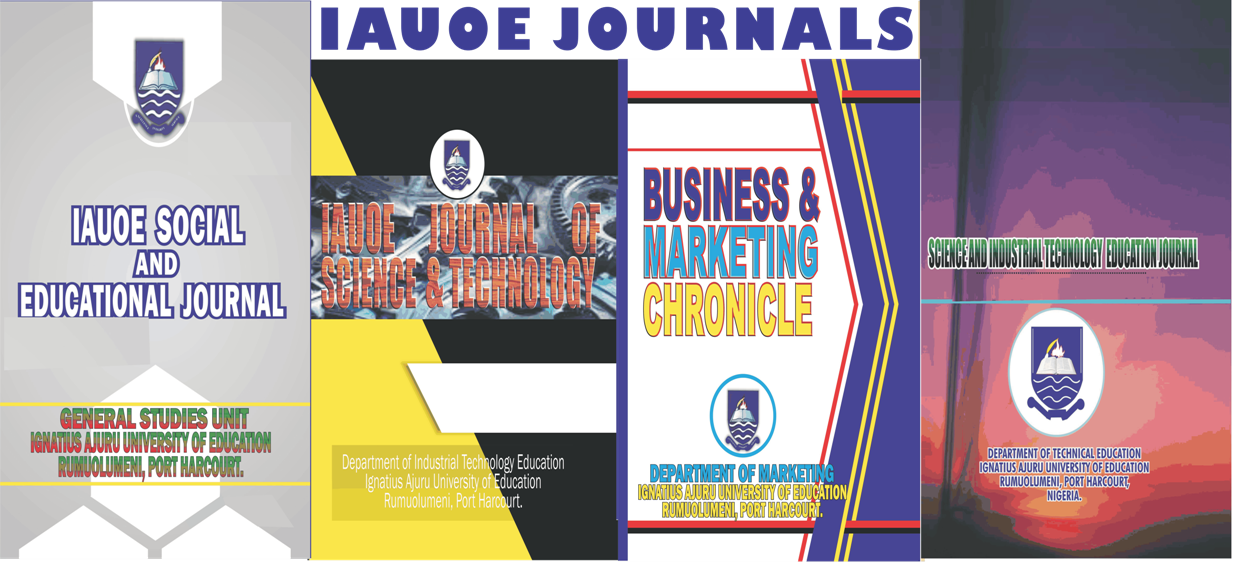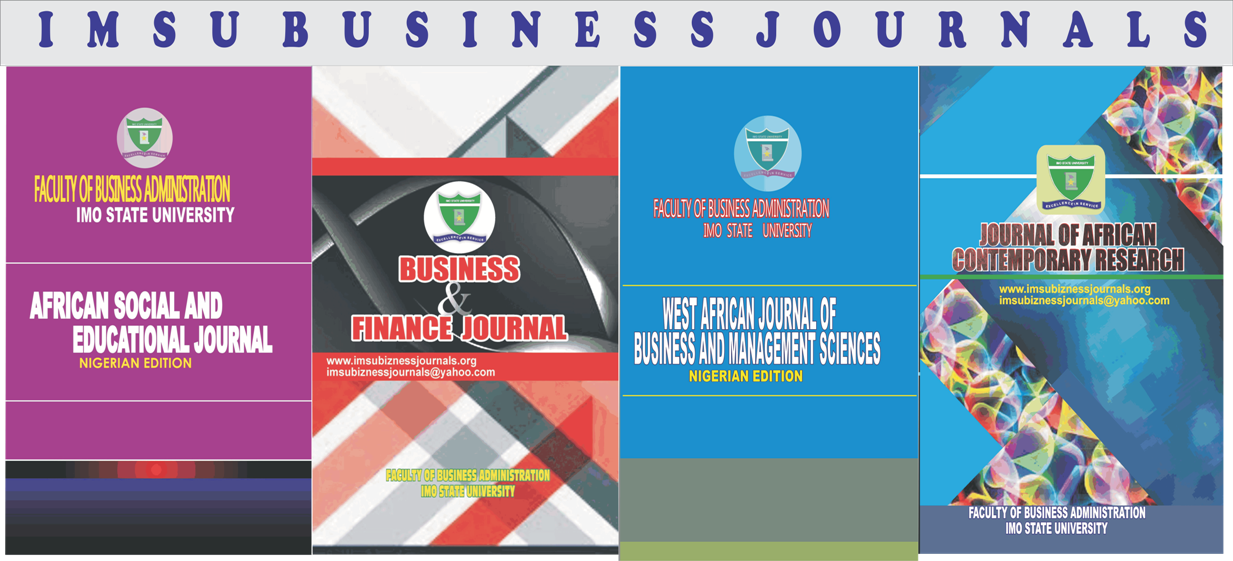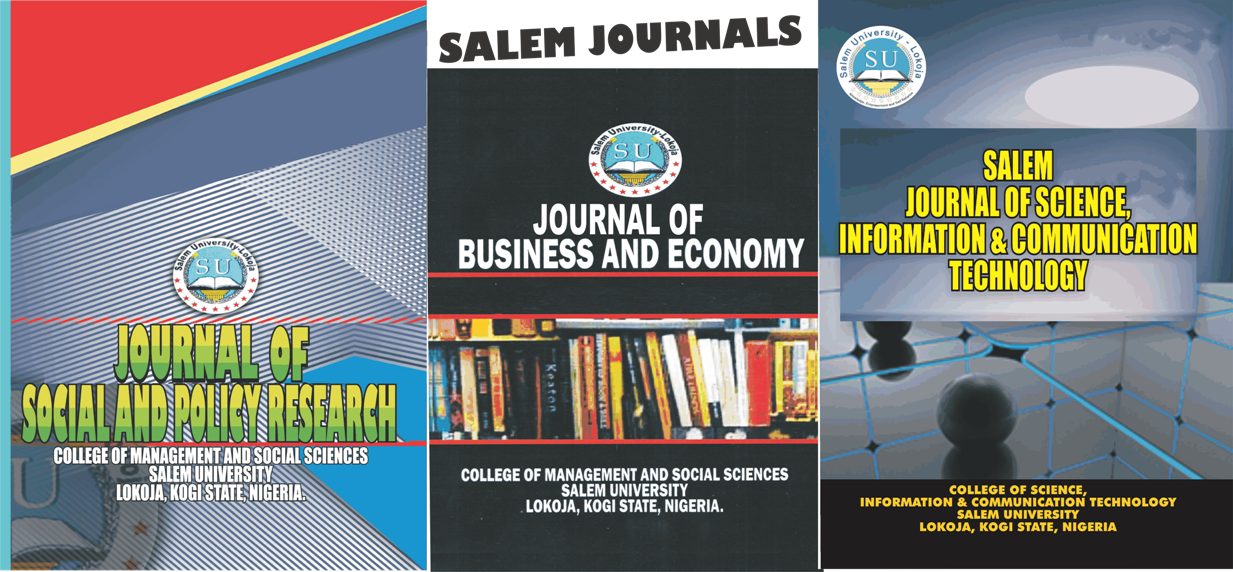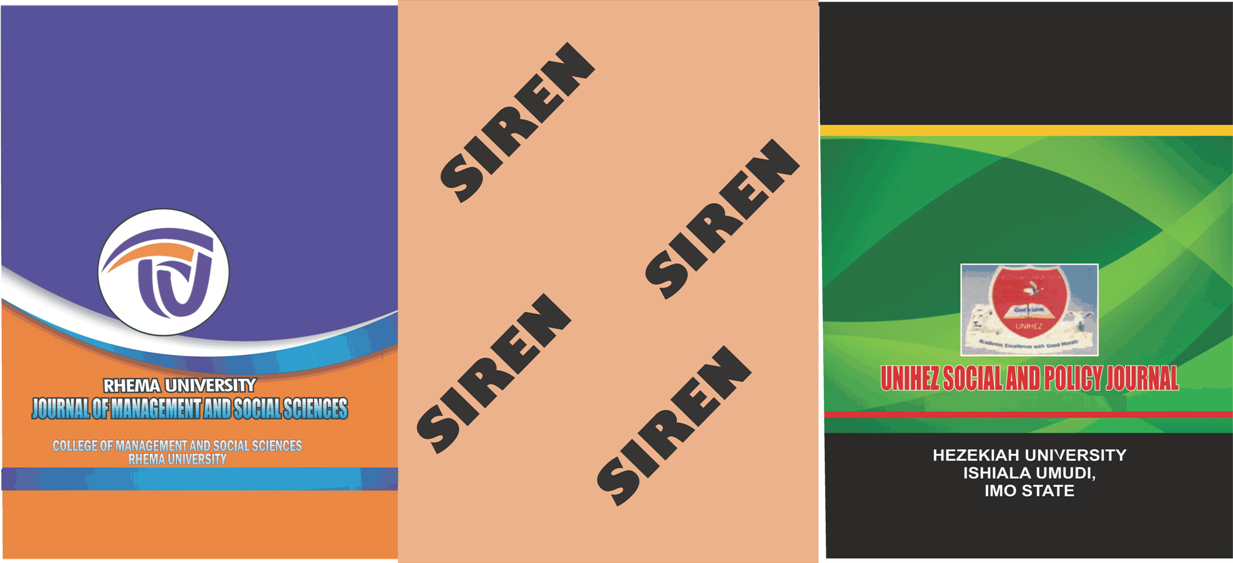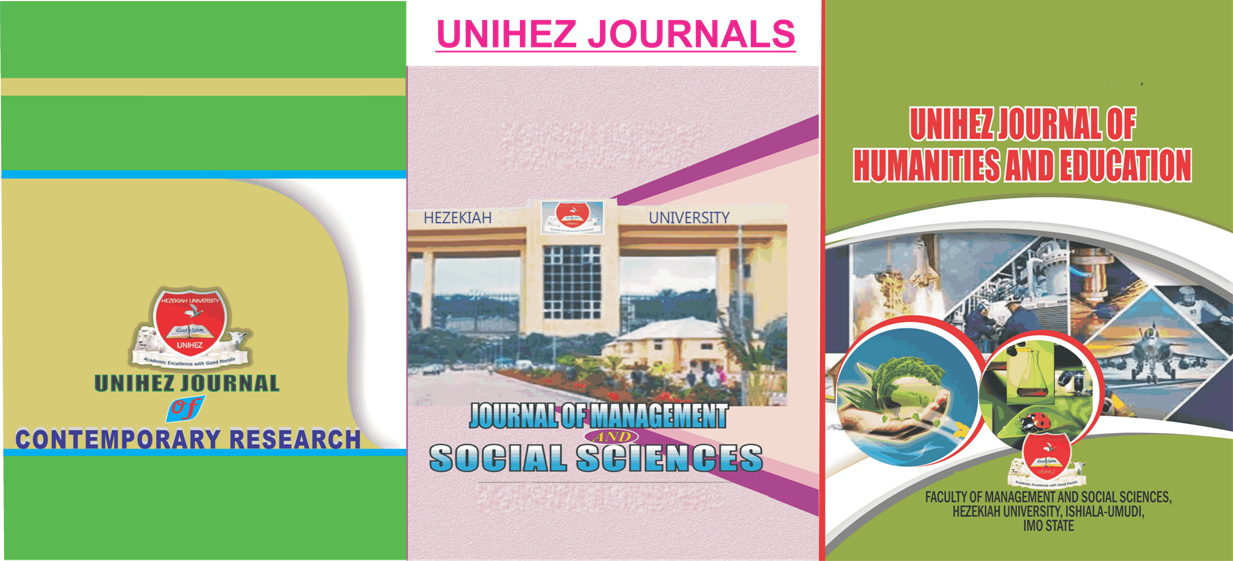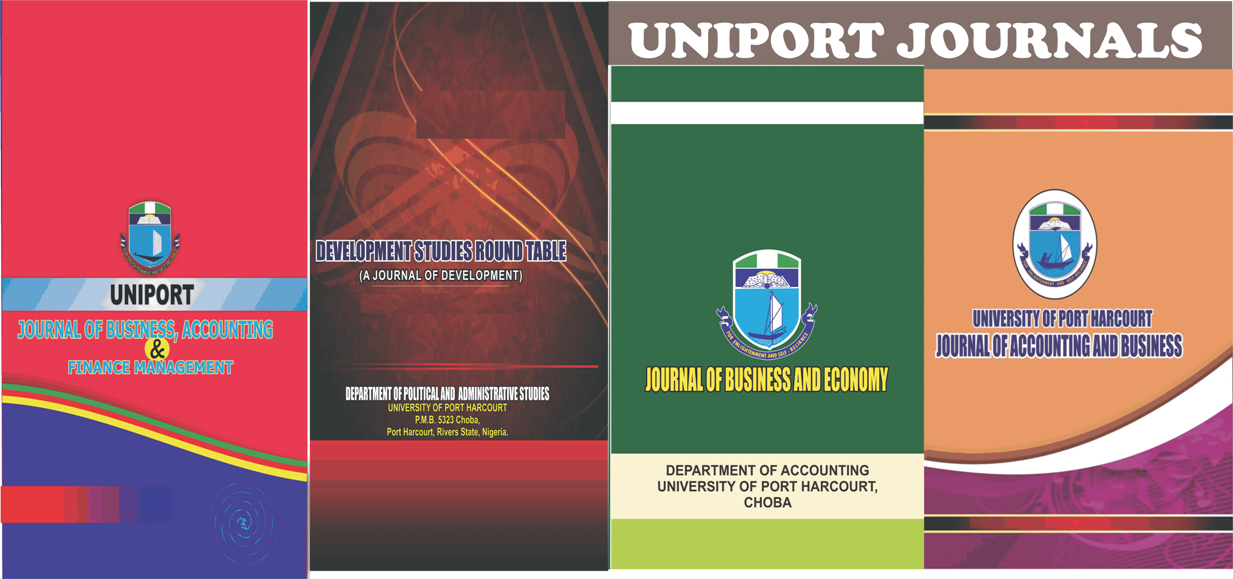2023 Archive
| 1 |
Title: PAY SATISFACTION AND FINANCIAL STRESS A STUDY OF THE SCHOOL TEACHERS IN THE NORTHERN PROVINCE, SRI LANKA.pdf Author: SIVARAJAH, K. ACHCHUTHAN Abstract: The primary aim of the study is to find out the impact or influence of pay satisfaction on financial stress among the school teachers in Northern Province, Sri Lanka. Further, secondary objective is to suggest the government authoritative bodies to reduce the financial stress through the better level of pay satisfaction, which will give the long term value to the Northern Province, Sri Lanka in terms of social, economic and political development. The study employs Multiple Regression Analysis to test the operational hypotheses. The survey method used in this study is a questionnaire and a total of 360 usable responses were obtained using simple random sampling technique. Findings revealed that, pay satisfaction has the influence or impact on the financial stress. Especially in the pay satisfaction dimensions, financial stress is negatively influenced by pay level and benefits as expected. In contrast, financial stress is positively influenced by the pay raises. Further, dependent variable as financial stress is not influenced significantly by the pay structure and administration. Researchers suggested that, Ministry of Education should come up with proper policy draft regarding to the pay structure and administration. Meantime, Government should conduct the continuous survey among school teachers in terms of financial, occupational stress, work related satisfaction and also performance evaluation. This study would hopefully benefit to the policy makers, and practitioners of Sri Lanka as well as other countries. keywords: Financial Stress, Pay satisfaction, Northern Province, Sri Lanka and School Teachers View |
| 2 |
Title: ENVIRONMENTAL DISCLOSURE AND CORPORATE FINANCIAL PERFORMANCE EVIDENCE FROM LISTED OIL AND GAS COMPANIES IN NIGERIA.pdf Author: OMORUYI BRIGHT INUAGHATA, JOSIAH MARY (Ph.D) & CLEMENT EDOJOR OZELE (Ph.D) Abstract: The broad objective of this study is to empirically analyze the effect of corporate environmental disclosure on firm financial performance of listed oil and gas companies in Nigeria using a time frame of fourteen (14) years. In this study, we employed ex-post facto and analytical research design on a panel data set sourced from annual financial reports of seven (7) listed oil and gas companies in Nigeria. Robust least square regression analysis was employed to test the formulated hypotheses after fulfilling necessary conditions for obtaining non-spurious least square regression estimates. Specifically, the result reveals mixed evidence which show that emission and energy disclosure has a positive statistically significant effect on financial performance measures of return on asset and return on equity, and biodiversity disclosure has a negative effect on both performance measures during the period under investigation. Based on these empirical outcomes, the study recommends among others that mitigating the negative effect of emission and energy disclosure on financial performance requires that managers must develop strong capabilities to identify and solve diverse managerial problems through innovative channels. However, all such channels can be linked to productive systems which can convert waste into saleable products and thus increase its profit. Keywords: Emission and Energy Effluent and Waste Biodiversity and water Environmental Protection Expenditure Financial Performance View |
| 3 |
Title: HUMANWARE AND GOAL ATTAINMENT IN HEALTH SERVICE ORGANIZATIONS IN SOUTH EAST REGION OF NIGERIA.pdf Author: PROF. ETHEL-ROSE B. UDOKWU AND GABRIEL UCHENNA BASIL Abstract: This study investigated the effect of humanware (a component of ICT) on the goal attainment of service health organizations in Owerri, Imo State, Nigeria. Specifically, they examined the effect of employee digital skillsets, refresher training, and ICT adoption and usage on organisational goal attainment. The study adopted a descriptive research design and sampled 330 respondents across health service organizations such as clinics, pharmacies, dispensaries, and laboratories. Both stratified proportionate random and simple sampling were used in selecting the samples from the population. Both descriptive (mean, percentages, and tables) and inferential (simple regression) statistics were employed for the purpose of data analysis. Findings revealed that the possession of digital skillsets has significantly contributed to the attainment of organisational goals for health service firms. Findings further revealed that refresher training on digital skills has significantly contributed to organisational goal attainment and that adoption and usage of ICT have a moderately positive and significant effect on the goal attainment of health service firms. The study recommended, among other things, providing training programmes for workers on how best to deal with information technology and building and developing individual abilities among workers to use them properly. Keywords: Humanware, goal attainment, digital skillsets, refresher training, usage ICT View |
| 4 |
Title: CUSTOMER VALUE STREAM AND PRODUCT DEVELOPMENT IN DEPOSIT MONEY BANKS IN SOUTH EAST NIGERIA.pdf Author: PROF. PETER UGOCHUKWU AKANWA & NNABUE ONYEBUCHI CYNTHIA Abstract: The study focused on customer value stream and product modification in Deposit Money Banks ((DMBs) in South East Nigeria. The study examined the relationship between each development value stream, operational value stream and product modification. The study adopted the survey research design. Data were obtained from primary and sources. The purposive sampling technique was adopted in the study. The Cronbach Alpha statistic was used to obtain a value of 0.82 as the instrument reliability ratio. Data analysis was committed to descriptive statistics and correlation analysis. The use of SPSS enabled the analysis. The results showed that development value streams significantly improved product modification in Deposit Money Banks and operational value streams positively influenced product modification in Deposit Money Banks. It was concluded that the customer value stream enhanced product modification in Deposit Money Banks in South East Nigeria. The researcher further noted that providing customer support helps get adequate customer feedback for improved product modification. It was recommended that the management of DMBs should always conduct marketing research to discover gaps that may be bridged by product modification. Furthermore, there should be management platforms for customer support, which always helps get feedback for enhanced product modification. Keywords: Customer value stream, development value stream, operational value stream, product modification. View |
| 5 |
Title: FORMAL SAFETY REPORTING SYSTEM AND GOAL ATTAINMNT IN NIGERIAN AIRSPACE MANAGEMENT AGENCY (NAMA).pdf Author: PROF. COSMAS CHIBUIKE ALUGBUO & NWAOBILOR CHIMA ALLOIS Abstract: The study focused on formal safety reporting system and goal attainment in Nigerian Airspace Management Agency (NAMA). Previous researchers on the topic did not address managerial concerns like flight timeliness and incident control as measures of goal attainment nor examine maintenance reports and traffic control reports as key indices of formal reporting system. The specific objectives of the study were to examine the extent of relationship between formal safety reporting system and goal attainment in NAMA using the identified indices. To realize these objectives, basic research questions were asked that led to the formulation of null hypotheses to guide the study. Descriptive survey design was adopted to suit the collection of data from the 203 employees that were judgmentally sampled in the five airports located in the South-East and South-South geo-political zones of Nigeria, with the use of structured questionnaire, based on the researcher’s understanding of the Agency. The hypotheses were tested with the Pearson’s Product Moment Correlation to evaluate the relationship between the variables. Based on the findings, the study concluded that formal safety reporting system has significant positive relationship with goal attainment in NAMA and the study recommends that; Maintenance reports should be timely and very apt in other to ensure flight timely operations among others. Keywords: Formal safety reporting, goal attainment, maintenance report, traffic control report, timelines, incident control. View |
| 6 |
Title: ELECTRONIC ORDERING AND COST CONTROL IN PUBLIC ORGANIZATIONS IN SOUTH-SOUTH REGION, NIGERIA.pdf Author: PROF. ETHEL-ROSE B. UDOKWU & IGONIBO EMMANUEL THOMPSON Abstract: Electronic ordering and cost control was the concern of this study. For this purpose, the specific objectives were to evaluate the effects of domestic and international e-ordering on overhead and material cost controls. A sample size of 294 was drawn judgmentally from six public organizations in south-south Nigeria, using questionnaire. The data were analyzed using SPPS for paired correlations. The results showed that domestic e-ordering had significant direct relationship with material cost control. Similarly, international e-ordering had a positive correlation with material cost control. It was concluded that electronic ordering has a significant positive relationship with procurement cost control. It was among others recommended that; both international and domestic ordering alternatives should be considered, where applicable, with preference to domestic platforms for more effectiveness on cost control. Key words: Electronic ordering, cost control, material cost control, overhead cost control, domestic electronic ordering, and international electronic ordering. View |
| 7 |
Title: BALANCE OF PAYMENT, INTERNATIONAL TRADE AND ECONOMIC GROWTH NEXUS IN NIGERIA A LOOK INTO THIRLWALL’S LAW.pdf Author: IFEANYI S. MGBATAOGU (PhD) NNENDA V. ERESU-DEEKAE (PhD IN VIEW) Abstract: This paper examines the nature of interrelationships that exist among balance of payment, trade and economic growth in Nigeria. The aim is ascertain validity (or not) of Thirlwall’s law of Balance-of-Payment (BOP) constraint growth in Nigerian economy using the bounds testing Auto regressive Distributed Lag (ARDL) approach. The ARDL bound test suggests that the variables in the framework have a long run relationship. Specifically, the income elasticity of import is found to be positive and significant. This implies that an increase in economic growth in Nigeria often leads to a rise in import in the short run. The value of export though positively related to economic growth, is not significant (at preferred 5% level though it appears significant at 10% level) in explaining changes in economic growth in Nigeria. Also, the results of the Granger Causality Estimates corroborate the findings as it reveals that Import and economic growth in Nigeria reinforce each other. This further buttresses the Thirlwall’s law of balance of payment constraint. The study concludes that in affirmation to Thirlwall, what a country produces and exports, as well as how the rest of the world spends (in relation to what the country produces) are crucial issues to the growth dynamics of an economy. From the above, the study recommends that the government should ensure the formulation and monitoring of efficient policies that will improve the growth rate of export to raise the economic growth rate. Precisely, current efforts being made to encourage and boost non-oil exports should be as a matter of deliberate economic policy vigorously pursued and implemented. Keywords: Balance of Payment, International Trade, Thirlwall’s Law, Economic Growth, Gross Domestic Product (GDP), Auto Regressive Distributed Lag (ARDL) View |
| 8 |
Title: TRAINING CLIMATE AND SALES GROWTH OF MANUFACTURING ENTERPRISES IN SOUTH EAST NIGERIA.pdf Author: UZOH KENNEDY C. (Ph.D) & IBEKWE MATTHEW EZE Abstract: The study investigates training climate and sales growth of manufacturing enterprises in South Eastern Nigeria. The study was conducted to find out the relationship between each of instructor-led training, e-learning, coaching/mentoring and sales growth in manufacturing enterprises. The study was guided by three research questions and three hypotheses. The survey resign design was used to handle the study. The researcher used the probability sampling technique in the study. Descriptive statistics of mean and standard deviation were used to analyze data. Correlation analysis was employed in the testing of the hypotheses. The analysis was enabled by Statistical Package for Social Sciences (SPSS). The findings showed that instructor-led training significantly influenced sales growth; e-learning enhanced sales growth; and coaching/mentoring improved sales growth in the manufacturing enterprises. It was concluded that training climate was a driver of sales growth in manufacturing enterprises in South Eastern Nigeria. The study recommends that manufacturing enterprises should always respect their tested and trusted training methods for the consistent improvement of their sales growth. Key Words: Training climate, Sales growth, Manufacturing enterprises. View |
| 9 |
Title: DIVERSIFICATION STRATEGY AND ORGANIZATIONAL COMPETITIVENESS OF LISTED MANUFACTURING COMPANIES IN SOUTH EAST, NIGERIA..pdf Author: PROF. ETHEL-ROSE B. UDOKWU & IKE, IJEOMA CHIDINMA (PhD STUDENT) Abstract: This study examined the relationship between diversification strategy and organizational competitiveness of listed manufacturing companies in South East, Nigeria. The study aimed at determining the relationship between diversification strategy (concentric and horizontal) and competitiveness of listed manufacturing companies in South East, Nigeria. The study adopted descriptive survey design. The population of the study was 594which is made up of managers, supervisors and administrative staff of listed manufacturing firms in South-East, Nigeria. A sample size of two hundred and thirty-nine (239) managers, supervisors and administrative staff was drawn from the population using Taro Yamane method. Proportionate stratified random sampling technique was also utilized in the study. However, only two hundred and fifteen (215) copies of questionnaire were retrieved. These were completely filled and used for the study. The Spearman Rank Correlation (rho) was used to test the relationship between diversification and organizational competitiveness. The result of the bivariate analysis revealed that diversification strategy measures (concentric and horizontal) had a significant positive relationship with the organizational competitiveness. The findings led to the conclusion that diversification strategy is imperative in improving the competitiveness of manufacturing companies in Nigerias South-East. The study recommended, among other things, that manufacturing companies as a matter of fact should diversify to enhance their market stability and to prevent over reliance on single product business while improving their competitiveness. Key words: Diversification, Concentric, Horizontal and Organizational Competitiveness View |
| 10 |
Title: IMPACT OF WOMEN ENTREPRENEURSHIP ON ECONOMIC GROWTH. A STUDY OF SELECTED SME’S IN IMO STATE.pdf Author: AYOZIE, EMMANUEL ACHIOLE & UDOKWU NNAMDI KODICHIMMA Abstract: This study has examined the impact of women entrepreneurship on economic growth income. The specific objectives of the study were to examine the impact of women entrepreneurship on employment generation, to investigate the impact of women entrepreneurship skill and learning on wealth creation, and to ascertain the impact of women social status on community and social development. The study adopted survey design approach, the total population was 450, using Taro Yamene formular the sample size of 212 was derived, however the total number of questionnaire returned was 201 which was used for the analysis. the questionnaire was subjected to supervisor’s corrections so as to achieve face and content validity. The test-retest method was used to determine the coefficient of reliability. The researcher computed the spearman’s product moment correlation coefficient which is denoted by r, and the value of r was above 0.5, which confirmed the instrument as reliable with the aid a statistical software known as SPSS version 20.0. The non-parametric Chi-Square test and Analysis of variance (ANOVA) statistical tools were used to test the hypotheses at 0.05 level of significance. The key findings of the study shows that women entrepreneurship has impacted on employment generation. Also that women entrepreneurship skill and learning has impacted on wealth creation. The study further discovered that women social status has impacted on the community/social development. Based on the findings, the study recommends that government should establish policies that should empower women to be source or driver of entrepreneurship to sustain growth of the economy. Since most women entrepreneurs grow their business as micro and small enterprises and treat it as family enterprise (perhaps, this is rooted from their motivational inspiration for starting the venture to just generate income for the sustenance of the family need), they need marketing, financial and managerial skills for effective management of such entrepreneurial operations. Women social status should not be abused as most people even in community might use it to allocate resources unequally thereby introducing inequality and injustice in the distribution of resources especially in our communities. Keywords: Entrepreneurship, Women Entrepreneurial skill, Economic Growth View |
| 11 |
Title: AGE DIVERSITY AND EMPLOYEE EFFECTIVENESS OF MULTINATIONAL MANUFACTURING COMPANIES IN SOUTH-EAST NIGERIA.pdf Author: . UDOKWU & EJIKEME, PRISCILLA NGOZI, Ph.D Abstract: This study examined age diversity and effectiveness of multinational manufacturing companies in South-East Nigeria. The aim of the study was to determine the relationship between age diversity and effectiveness (productivity, employee commitment and employee morale) of multinational manufacturing companies in South-East Nigeria. The study adopted the survey research design. The target population of the study consisted of all the 45 registered multinational manufacturing companies in South-East Nigeria while the accessible population was limited to 25 selected multinational manufacturing companies in South-East Nigeria. A population of 3,184 permanent staff (comprising managers and employees) was identified in the 25 selected multinational manufacturing companies in South-East Nigeria. A sample size of 355 permanent staff was used for the study. The sample size was determined using the Taro Yamene’s formula. A structured questionnaire was used for data collection. The data collected from the respondents were analyzed statistically while the hypotheses were tested using Spearman Rank Order Correlation Coefficient (rho) and the SPSS software program version 23. The findings revealed that age diversity has a significant relationship with productivity of multinational manufacturing companies in South-East Nigeria. The study also found a significant relationship between age diversity and employee commitment of multinational manufacturing companies in South-East Nigeria. The study also discovered a significant relationship between age diversity and employee morale of brewery companies in South-South Nigeria. Based on these findings, it was concluded that age diversity significantly enhanced the effectiveness of multinational manufacturing companies in South-East Nigeria. Based on these findings and conclusion, it was recommended that multinational manufacturing companies in South-East Nigeria should ensure that their work environment is made up of workers of different age groups as it would enable both the younger and older workers teach, share and learn from one another so as to increase their productivity and achieve organizational effectiveness. Keywords: Age diversity, Employee effectiveness, Employee commitment, Employee morale View |
| 12 |
Title: INSECURITY AND PERFORMANCE OF SMALL AND MEDIUM SCALE BUSINESS IN NIGERIA EVIDENCE FROM OPERATION PYTHON DANCE IN ABIA STATE.pdf Author: OZIMS EKWUTOSI PhD Abstract: This study has examined the relationship between insecurity and performance of small and medium scale businesses in Nigeria: evidence from operation python dance in Abia state. The study formulated three objectives of the study, research questions and hypotheses. The study adopted survey research design and the questionnaire was the major instrument used to generate data. Simple percentages and Analysis of Variance (ANOVA) were used to analyse the responses for meaningful, reliable and useful inferences. The findings showed that there is a significant relationship between insecurity and customer retention by SMEs. Insecurity relates to productivity by SMES; and that there is a significant relationship between insecurity and sustainability by SMES. Based on the findings, the study recommended among others that government should as a matter of urgency formulate good policies and enacts laws that could nip the problem in the bud. Keywords: Insecurity, Performance, productivity, customer retention, and sustainability View |
| 13 |
Title: FORWARD INTEGRATION STRATEGY AND EFFECTIVENESS OF FOOD AND BEVERAGE MANUFACTURING FIRMS IN SOUTH-SOUTH NIGERIA.pdf Author: AGULANNA, EDWARD CHUKWUDI, Ph.D & OMORAKA, STEPHEN OGHENEKEVWIRORO, Ph.D Abstract: This study explored forward integration strategy and effectiveness of food and beverage manufacturing firms in South-South Nigeria. The aim of the study was to determine the impact of forward integration on productivity, customer patronage and market share of food and beverage manufacturing firms in South-South Nigeria. The study adopted the survey research design. The population of the study consisted of 508 managers of the selected food and beverage manufacturing firms in South-South Nigeria. A sample size of 224 managers was used for the study. The Taro Yamane’s formula was used to determine the sample size for the study. The instrument used for data collection was a structured questionnaire. The data collected were analyzed statistically while the hypotheses were tested using Pearson Product Moment Correlation Coefficient (r). The bivariate analysis was performed with the aid of the SPSS 23 version. The findings revealed that forward integration has a significant relationship with productivity of food and beverage manufacturing firms in South-South Nigeria. The study also found a significant relationship between forward integration and customer patronage of food and beverage manufacturing firms in South-South Nigeria. The study equally discovered a significant relationship between forward integration and market share of food and beverage manufacturing firms in South-South Nigeria. Based on these findings, it was concluded that forward integration strategy significantly enhanced the effectiveness of food and beverage manufacturing firms in South-South Nigeria. Based on these findings and conclusion, it was recommended that food and beverage manufacturing firms in South-South Nigeria should adopt forward integration strategy as it would enhance their effectiveness in terms of increasing their productivity, sales growth and profitability. Keywords: Forward integration strategy, effectiveness, customer patronage, productivity, market share View |
| 14 |
Title: EMOTIONAL INTELLIGENCE COMPETENCES AND PERFORMANCE OF HEALTH WORKERS IN IMO HEALTH FACILITIES.pdf Author: UZODIMMA, EMMANUEL EZENWA, PhD NJOKU, KENNETH CHUKWUDI, PhD & PATE-SADIQ, HAUWA, M.Sc. Abstract: The study investigated emotional intelligence competences and performance of health workers in Imo health facilities. The objectives of the study were to investigate the relationship between empathy and staff commitment; evaluate the extent to which empathy correlates with staff competence; examine the extent to which emotional self-control correlates with staff commitment; and assess the relationship between emotional self-control and staff competence in Imo health facilities. The study was guided by four research questions and four hypotheses. Daniel Goleman’s theory of emotional intelligence was used to handle the theoretical framework of the study. The researchers employed the survey research design in the research. A structured questionnaire was the major instrument for data collection. The sample were 280 health workers selected for the study through simple random technique. They were drawn from 10 health facilities selected from the three senatorial districts in the State using purposive sample technique. The age range of the sample is between 18 - 60 years, with a mean age of 39Data analysis was committed to descriptive statistics of mean and standard deviation. Cronbach Alpha statistics was used for determining reliability ratio of the survey instrument. Correlation analysis was used to test hypotheses. It was found that each of empathy and emotional self-control positively and significantly impacted on staff commitment and staff competence in Imo health facilities. It was concluded that emotional intelligence competences positively and significantly influenced performance indicators of health workers in Imo health facilities. The study recommended that Management of health facilities should always encourage health workers to eschew any factor that may distance them from being empathic over their patients so as to consistently boost their staff commitment abilities in the health facilities. Management and health workers should at no point in time relegate emotional self-control and staff commitment to the background in health facilities for the good of the patients, the organizations and the society at large; Management and health workers should at no point in time relegate emotional self-control and staff commitment to the background in health facilities for the good of the patients, the organizations and the society at large. Keywords: Emotional intelligence competences, Empathy, Emotional self-control, Performance, Health workers. View |
